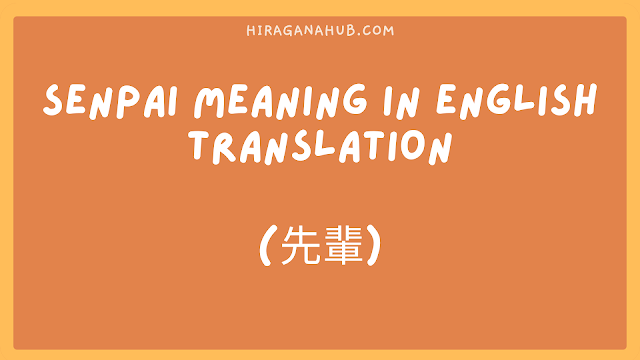When I first started learning Japanese, one of the intriguing cultural
concepts I encountered was the “senpai meaning.” In English, “senpai” refers
to someone who is your senior or mentor, often seen in schools or workplaces.
This term isn’t just a label; it’s deeply rooted in Japanese society and
values, much like knowing how to say basic greetings appropriately. The
senpai-kohai relationship defines much of the interactions in educational and
professional settings.
What Does Senpai Mean?
The word “senpai” (先輩) signifies a senior who provides guidance and support
to their junior, known as “kohai” (後輩). This relationship is paramount in
Japanese culture, emphasizing respect and learning. Understanding the
pronunciation, which sounds like [sehn-pai], is crucial because it reflects
your awareness and respect in addressing others correctly.
The Role of Kohai
“Kohai” is the counterpart to “senpai,” describing someone who looks up to
their senior. This dynamic is based on mutual respect and the transfer of
knowledge and culture. In conversations, how to say these terms correctly can
significantly affect your rapport and standing within a group.
Example Conversation
Let me share a simple but illustrative conversation I observed in a Japanese
high school:
Kohai: 先輩、おはようございます!昨日の宿題、ありがとうございました。(Senpai,
ohayou gozaimasu! Kinou no shukudai, arigatou gozaimashita.)
Good morning, senpai! Thank you for helping me with the homework yesterday.
Senpai: どういたしまして、これからも頑張ってね。(Dou itashimashite, kore kara
mo ganbatte ne.)
You’re welcome; keep doing your best from now on.
This exchange highlights the respect and encouragement typical of the
senpai-kohai relationship.
Importance of Pronunciation
Correct pronunciation is essential when using terms like senpai and kohai. It
reflects not only your linguistic skill but also your understanding of
cultural nuances. Practicing these terms helps convey respect accurately,
ensuring smoother interactions.
Understanding the meaning of senpai and its application in everyday life gives
valuable insights into Japanese hierarchical structures. It teaches the art of
respectful communication that extends beyond language. As I continued
learning, the depth of such cultural practices inspired a profound respect for
Japan’s social harmony. This article encourages you to explore these cultural
dynamics further. Embrace the learning, and discover what it truly means to
have a senpai!



